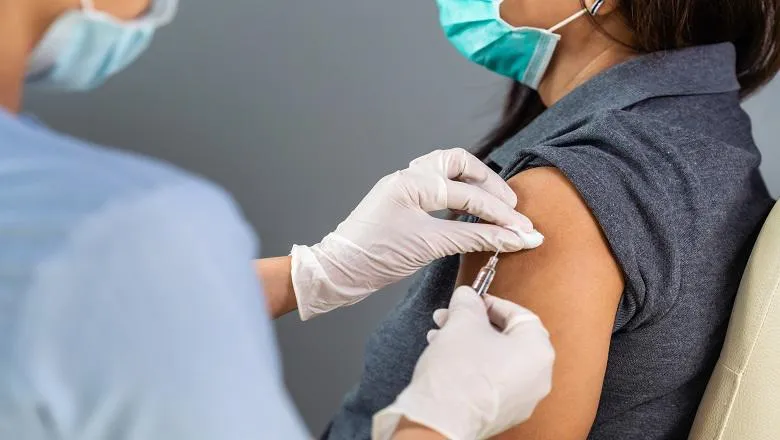It is important to recognise that there are many reasons underpinning demographic differences in vaccine uptake, and it is not simply about the need for more or better information. However effective risk communication informed by meaningful community engagement and an understanding of psychological drivers can undoubtedly play a vital role in supporting the public to make well-informed decisions.
26 April 2021
Researchers to investigate COVID-19 vaccine uptake in minority ethnic groups in the UK
The Department of War Studies is undertaking a new Covid19 research project, led by Dr Julia Pearce

Dr Julia Pearce from the Department of War Studies is undertaking a new research project aimed at understanding facilitators and barriers to COVID-19 vaccine uptake among minority ethnic groups in the UK.
Dr Pearce, Senior Lecturer in Social Psychology and Security Studies, alongside Dr Atiya Kamal from Birmingham City University, in partnership with Public Health England, is exploring the psychological drivers and impact of public health communications on COVID-19 vaccination beliefs of minority ethnic groups in the UK.
Recent evidence indicates that some minority ethnic groups are less likely to receive the COVID-19 vaccine. Given these groups are also disproportionately at risk from the disease, vital evidence is needed to determine factors inhibiting vaccine uptake. There is limited evidence of the reasons underpinning vaccine hesitancy in minority ethnic groups in the UK, but it is potentially linked to beliefs about vaccine safety/efficacy and issues of mistrust towards formal services, as well as practical barriers such as access.
The research project, funded by the Economic and Social Research Council (ESRC), as part of UK Research and Innovation’s rapid response to Covid-19, involves three waves of interviews and focus groups with community members and organisations in London and Birmingham. This will allow an in-depth exploration of barriers and facilitators of vaccine uptake and any changes in COVID-19 and vaccination risk perceptions over time. The researchers will also use a behavioural sciences framework to evaluate local and national campaigns across the UK to facilitate the development of evidence-based, tailored health messages to support vaccination decision making.
Taking place over eighteen months, the project will enable the researchers to engage with community organisations, local authorities and community members in a sustained and meaningful way. Understanding the experiences of community groups and the barriers and facilitators to support they can offer during the vaccination phase of COVID-19 response, will help strengthen responsive partnerships between third sector organisations and local authorities, and ultimately the communities they seek to support.
Dr Julia Pearce said:
Dr Atiya Kamal said:
This is a great opportunity to work with communities directly to facilitate the development of health messages and support the ongoing success of the UK vaccination programme. I look forward to working with colleagues at KCL, PHE and across different local authorities to develop mechanisms for sharing tailored health messages and promote vaccine equity across diverse groups.

